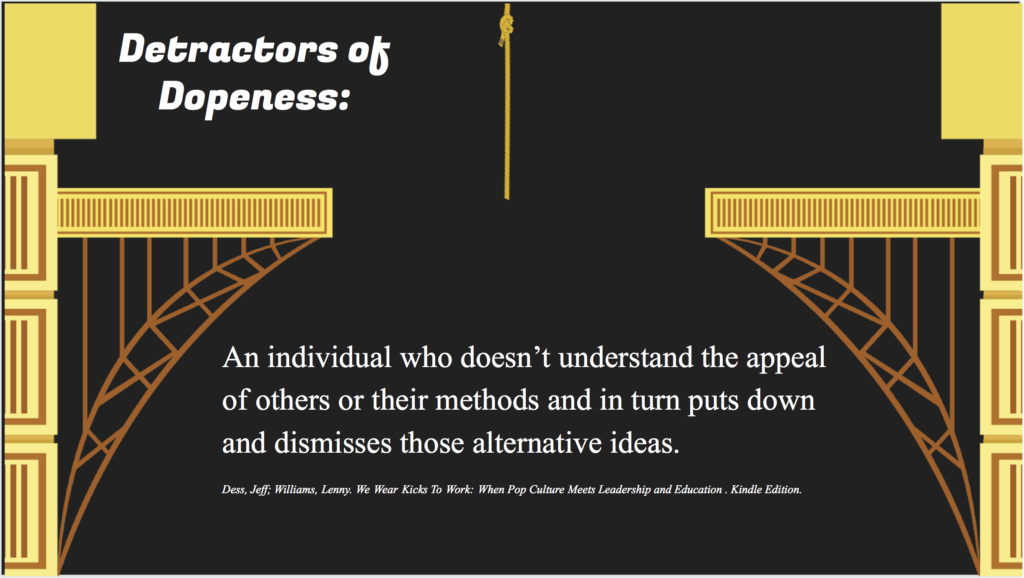What does it truly mean to advocate as a peer and assert your identity in higher education landscape that feels so restrictive?
On Friday November 5, 2021, more than 30 attendees came together to explore “Asserting your Identity in Higher Education: Reimaging Peer Advocacy.” In this special Digital Friday session, I discuss how to truly reimagine Peer Advocacy to create long-standing positive change. In this Squid Game themed presentation fellow attendees and I explore what it feels like to be a student in higher education. Time after time, we see educators who refuse to include the thought processes and experiences of their students within their curriculum or programming. And that can feel like a never-ending game of debt and stress. One that requires us to come up with “creative solutions” under extreme time constraints. Which usually that forces us into these fixed boxes. Eventually locking us into an endless cycle of I wish I did, I wish I was, and regret.
I examine Gestalt psychologist, Karl Duncker concept of functional fixedness or the tendency to overlook four types of features possessed by a problem object (parts, material, shape, and size) because of the functions closely associated with the objects. So that leaves us with the question of overcoming function fixedness and how we can use these experiences to become advocates. And if you were to ask me the best possible way to overcome personal fixedness, I’ll remind you that not embracing innovation will always serve as imprisonment of excellence! I also include aspects of abolitionism, a transformative justice which conceptualizes what it means to bridge social movements against racial, sexual, and gender violence at the individual and institution levels. When we let our fellow peers have creative freedom, we often find we’ll create counter spaces for protection, out of love, care, and resilience. If we were to take this further, we find that peers with guidance, mentorship, and resources can create the positive movements that are essential to foundation of abolition.
In 2014, I was told that I was considered the bottom rank this extremely elite academic high school. The verdict was clear that based on these ridged standards I had no future, no impact, no identity. But I went on, applied and was accepted to college. I struggled hard and in 2015 due to extreme circumstances, I gave up on the school system. I decided being trans in college was hard, impossible and I could never do it. I dropped out–determined to never come back. As you can see, I am a liar and I am proud of that! It was peers around me who encouraged me to look beyond a degree and look for what was calling me and what I wanted. I’m blessed to have randomly told myself that I should apply for everything that comes my way and had the opportunity to be a part of the CUNY Peer Leaders because it was there, I was able to reimagine my own experiences in education as something beyond the classroom. I used a basic portfolio program and resume tool to springboard into a movement. That’s the story of Q’onnections. That’s me, the founder and director of an amazing program that now pays students to educate each other on queer issues, and the college experience and a program that has a history of foster peers to advocate. To date, all peers who’ve taken part of this LGBTQ+ Center at John Jay College are now student leaders or pursuing PhDs. One graduating mentee made his goal to finish his career at John Jay as a queer mentor. More recently, I had the pleasure of seeing two peers speak about student leadership in their first conference at CCNY.

A presentation slide from my Digital Friday: Don’t be a detractor of dopeness. The early days of an idea matter because this is the time when they either grow or wilt. Students are silenced on campuses all across the board because they look different, have out of the box thinking and create colorful remixes to the archaic structures of our academic world. We are culture culminating curators or the lived experiences of the now and it will always be the peers who elevate advocate in a way that’s never been seen before.
Let’s use the tools we have to take a leap into the messy world of education and learning and create grassroots advocacy right from our laptops, phones and tablets. The most difficult and urgent challenge today is that of creatively exploring new terrains of justice where our old ideals no longer serves as our major anchor but that shouldn’t stop us from trying. It’s important to remember despite the role or position peers and students alike will always recognize authenticity.


